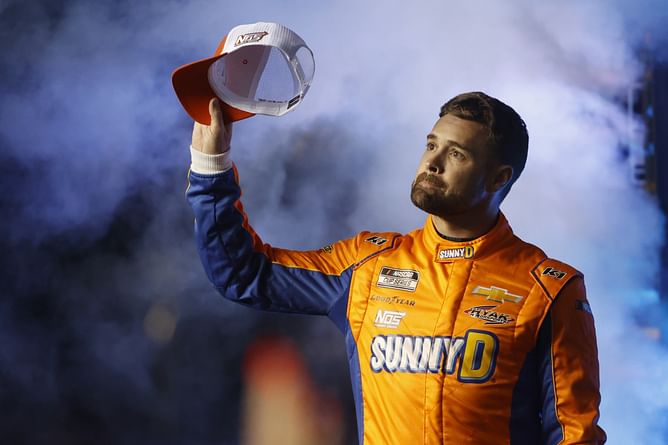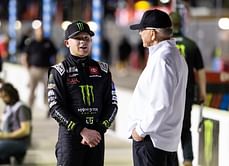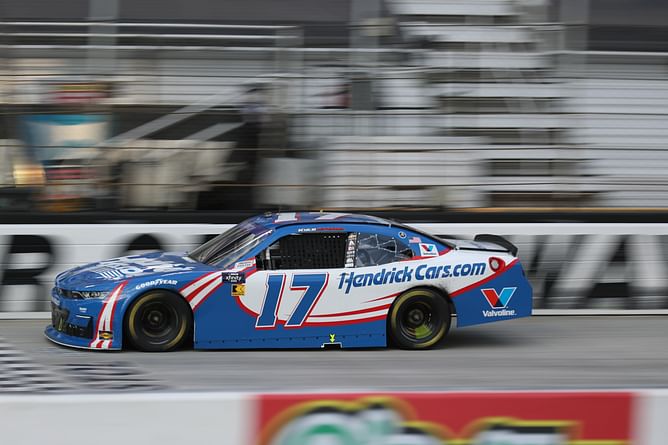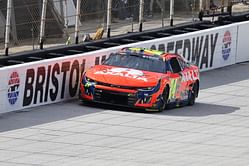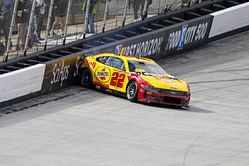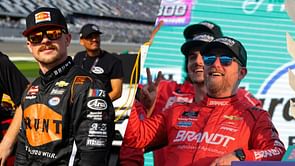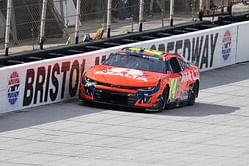NASCAR
About NASCAR
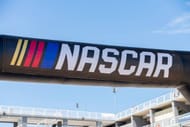
National Association of Stock Car Auto Racing is the full form of NASCAR. As its name suggests, NASCAR utilizes stock cars, i.e. production cars which are street legal.
Unlike the GT racing cars, most of which are track-specific and not street legal, NASCAR cars like Toyota Camry, Chevy Camaro, Ford Mustang can be used outside the races as well. It is also different from Formula 1 and IndyCar, which have open wheel racing.
NASCAR History
NASCAR was a privately funded company formed by Bill France Sr. in 1948, with its headquarters at Daytona Beach, Florida U.S. It is affiliated to the Automobile Competition Committee for the United States, under the FIA. Bill France Sr. was the pioneer behind NASCAR and it all started with racing on the famous Daytona Beach. Jim France, who is his son, has been the CEO of NASCAR since August 2018.
The current cars used in NASCAR are known as the Next-Gen cars and each year, NASCAR sanctions over 1500 races all over the United States and in Canada, Mexico, Brazil and Europe.

NASCAR Schedule
The NASCAR calendar consists of 36 different races spanning across North America, with some races being held in Brazil as well. The races are scheduled for Saturdays and Sundays. Saturdays are reserved for Qualifying sessions whereas Sundays, feature the main race. The calendar starts in February and also involves entertainment-oriented races like the NASCAR All-Star race and the Busch Light Clash.
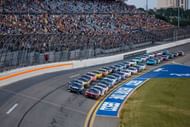
NASCAR Series
NASCAR has three different series - Cup Series, Xfinity Series, Craftsman Truck Series.
NASCAR Cup Series
NASCAR Cup Series is the most elite level of stock car racing because it has the most exposure and highest-paid money. The Cup Series features more than 40 drivers in a race and three car manufacturers. Toyota, Chevy and Ford are the primary suppliers in the NASCAR Cup Series. The cars are the most advanced and fastest of all NASCAR series and stock car racing, with speeds crossing 190 mph.
Ryan Blaney won the 2023 NASCAR Cup Series. He races for Team Penske. Richard Petty, Dale Earnhardt and Jimmy Johnson are drivers with the most number of wins in the NASCAR Cup Series. Hendrick Motorsport is the most successful team in the Cup Series.
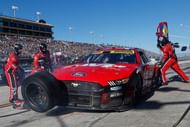
NASCAR Xfinity Series
The Xfinity Series, previously known as the Busch series, is the second division of NASCAR and a popular series for young talent as well as retired racers. The Xfinity series began in 1982 and is a good scouting ground for the highest division. Teams often sponsor and pick up young performers who have established their talent in the Xfinity Series. NASCAR Xfinity Series features many teams from current and past NASCAR drivers, like JR Motorsports founded by Dale Earnhardt Jr.
The Xfinity Series is pretty similar to the NASCAR Cup Series as it follows the same playoffs format and has the same tracks, with shorter races. The cars provide almost the same amount of power compared to their performances in the Cup Series. Kyle Busch is the most successful driver in the Xfinity Series with 100 wins. The winner of the 2023 Xfinity Series was Cole Custer from Stewart-Haas Racing.
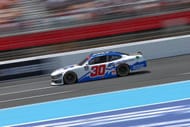
NASCAR Craftsman Truck Series
The Truck Series is the lowest division of NASCAR and as its name suggests, it races stock trucks from the official manufacturers of NASCAR. NASCAR Truck Series serves as an introduction to the sport for many drivers while retired veterans also race on a part-time basis. The Truck Series cars are powered almost similar to NASCAR Cup Series. It was formed in 1994 and it follows the same format as the other divisions of NASCAR racing. The winner of the 2023 Craftsman Truck Series was won by Ben Rhodes.
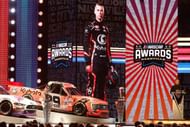
NASCAR Points System
There are 26 Regular Season races which award playoff points to every race victor and stage winners. After 26 races, the Regular Season Champion is decided based on standings. From these standings, the top 16 drivers are invited to participate in the playoffs, also known as the Chase for Cup Series, from which the Series Champion is determined.
The Chase for Cup Series consists of 10 races. After every third playoff race, four bottom-placed drivers are eliminated. It leaves behind four drivers for the final race, from where the season’s champion is determined, from where the series champion is determined.
Also note - The drivers who have not qualified for the Chase for Cup Series can still race in the playoffs. They will not be considered for the Championship but they can still win the race and also collect post-season data along with the prize money for the particular race.
For each stage (except the final stage) of a race in the regular season, the top-10 drivers receive 10 to one points with a one point difference. One bonus playoff point is awarded to the driver who wins each stage (to be calculated if the driver qualifies for the Chase for Cup Series).
For the final stage of the race, the result determines the points each driver is awarded. The winner receives 40 points, the runner-up receives 35 points and then from there on with a point difference of one until the 35th driver who gets two points. The last five drivers of the race receive one point each for completing the race. The final stage winner also receives five bonus points for the playoffs (to be calculated if the driver qualifies for the Chase for Cup Series).

NASCAR Race Venues
NASCAR has venues in USA, Canada, Brazil and Mexico. There are over 100 tracks. These tracks are classified as: Speedways which are up to 1.5 mile in length, Superspeedways for those greater than 1.5 miles, Short Tracks for tracks less than one mile in length and Road Courses which are like traditional racing circuits.
The most famous NASCAR tracks have races which are known as the “Crown Jewel” races. The Crown Jewel races are a group of four important races in NASCAR. They are:
Daytona 500; the race with the biggest purse and audience presence;
Coca-Cola 600; the longest NASCAR race;
Brickyard 400; the fastest NASCAR race;
Southern 500; the oldest NASCAR race
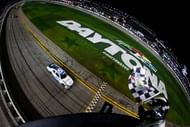
FAQs
A. NASCAR is the abbreviation of National Association for Stock Car Auto Racing.
A. The CEO of NASCAR is Jim France since 2018, as of June 2024.
A. NASCAR uses heavier stock cars, whereas Formula 1 uses lighter open wheeled cars.
A. Yea, Michael Jordan is the co-owner of 23XI racing.
